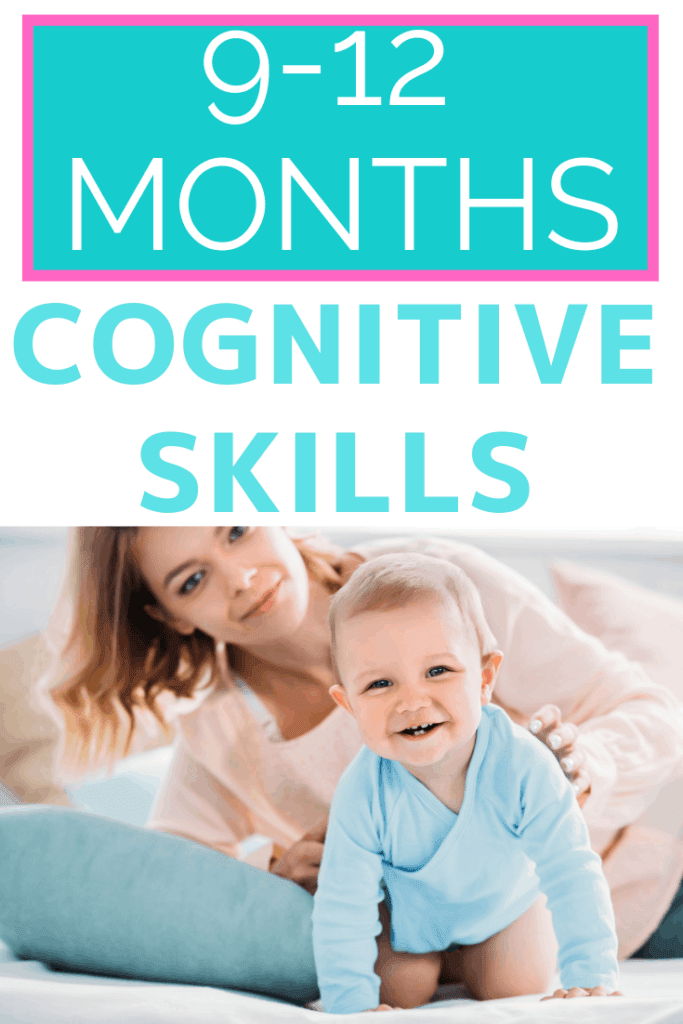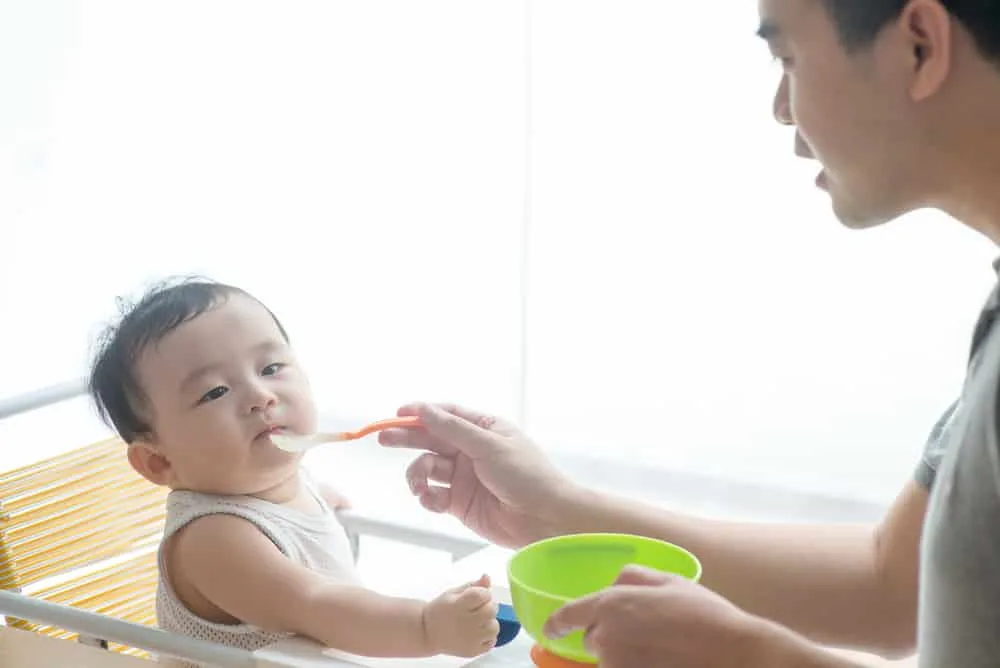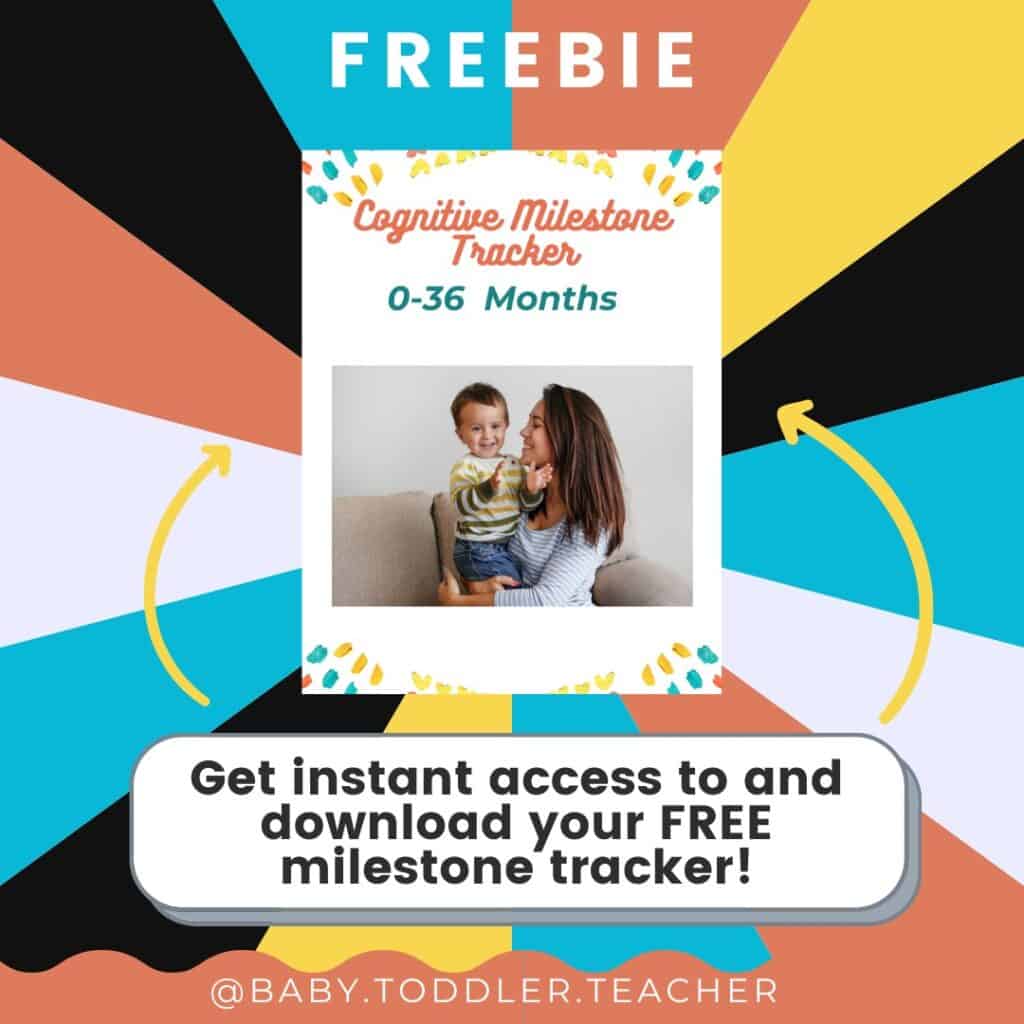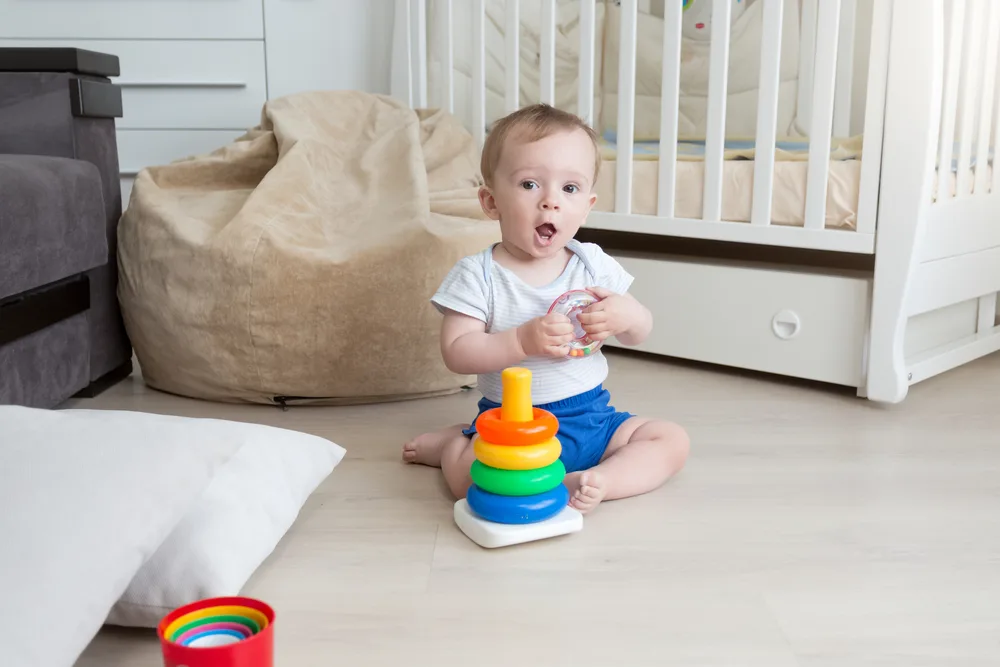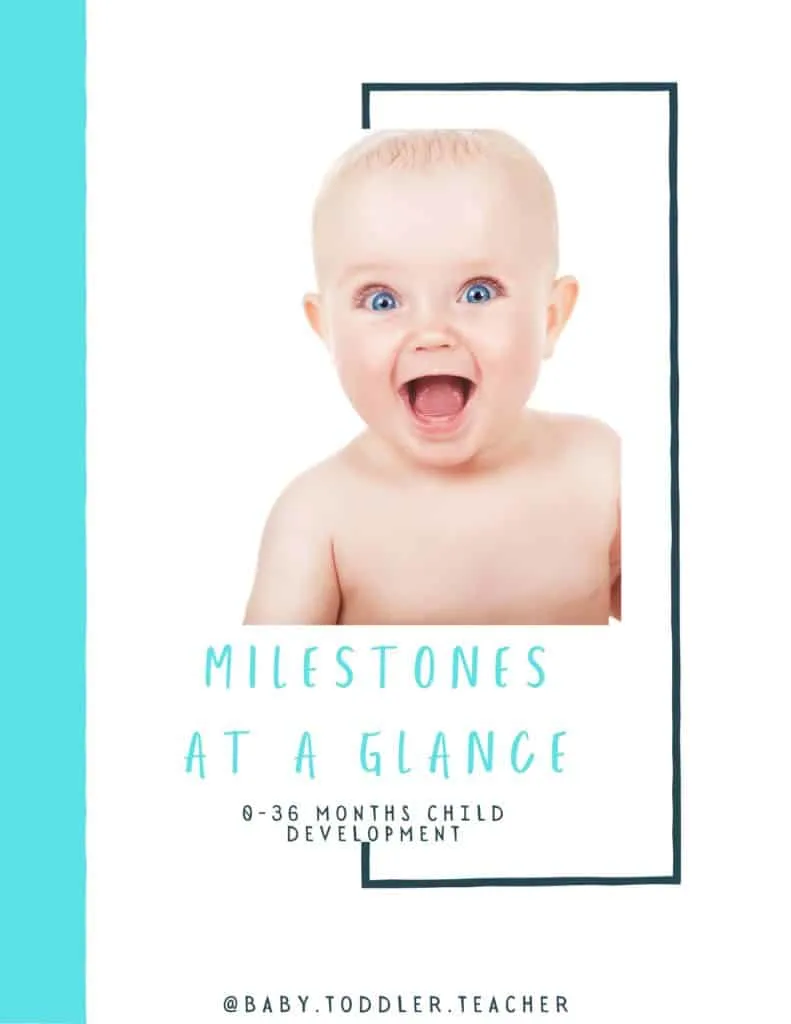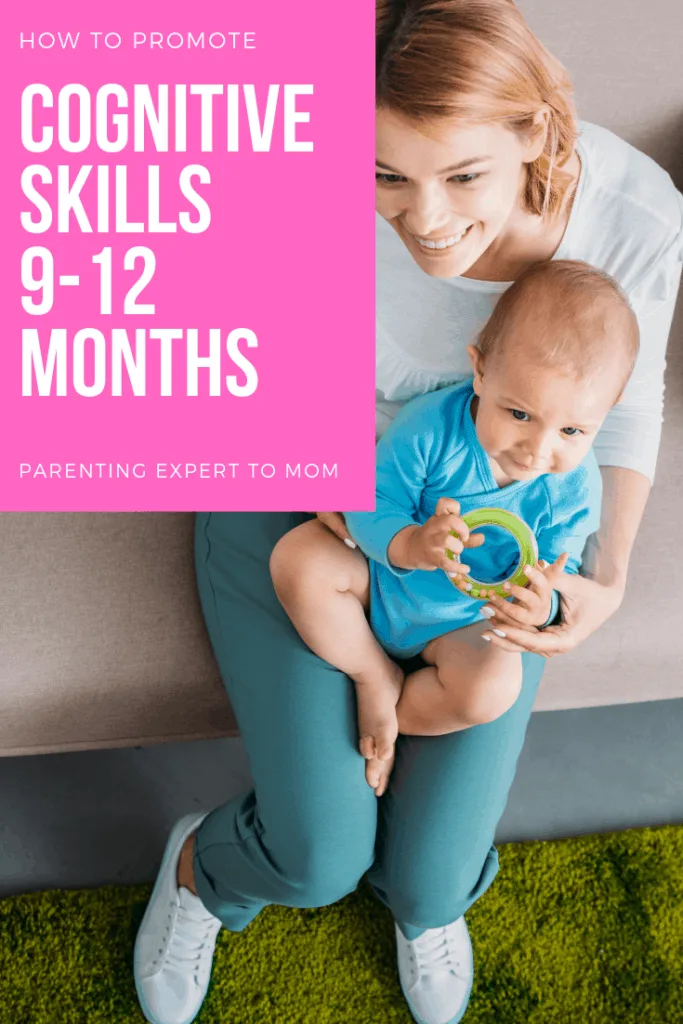Your baby is now almost a year and I bet you can not believe how different they are from birth!
Their cognitive skills at 9-12 months are helping them to understand and take in new all of the new information around them.
Let’s take a look at what intellectual milestones look like in babies 9-12 months.
We will also cover some simple tips on how to encourage your baby’s cognitive development as well.
If you ever have concerns about your baby’s development you can contact your state’s early intervention program for support.
Cognitive Development 9-12 Months
(This post may contain affiliate links. To read our full disclosure policy click here.)
What Do Infant Cognitive Skills Look Like From 9-12 Months?
Imitating Gestures
Have you noticed that your baby is starting to imitate simple gestures?
They can probably wave “hi” and “bye” and can clap their hands.
Throws Objects
Is your baby starting to throw everything?
From throwing toys to throwing food off of the highchair this is all part of typical cognitive development.
Your baby is exploring cause and effect as well as coordinating many movements while throwing.
Understands “no”
Have you noticed that when you tell your little one “no” they react?
They may stop what they are doing and look at you or start to cry.
They are starting to understand and react to simple words and phrases which is an awesome skill to gain!
If your baby is curious make sure that you have baby proofed your house well so that your baby stays safe.
How I Help My Baby Gain Cognitive Skills From 9-12 Months?
Encourage Intellectual Development Through Daily Routines
One of the best ways you can encourage cognitive skills in your infant is through the simple things you do every day.
When you are at the grocery store, label the items as you put them in your cart.
This encourages receptive language skills which will help your little one understand and process language (for more ideas like this click here.)
Reading and Cognitive Development in Babies
Books are the perfect toy!
They encourage skills in all areas of development…including cognition!
I bet you have been reading to your baby at bedtime or before naps.
If not…that’s ok! Now is the time to start!
If your baby is interested in books help them learn how to follow simple directions by asking them to point at pictures.
Chances are they will not be able to do this without assistance.
Just grab their hand and help them pat at the pictures as you talk about them.
Some babies may not be interested in books.
You can still expose them by simply reading out loud while they play.
They do not have to be sitting in your lap to gain the benefits of books.
You could also try letting them explore books with different textures (like these) to spring interest.
Play Ideas for Babies 9-12 Months that Promote Cognitive Skills
Play naturally teaches your baby all about the world.
Simple skills like cause and effect are developed through playing with toys like this one.
You can model certain skills through play such as throwing a ball to see if your little one will imitate you (this is also great for motor development).
Play imitation is critical as it leads to the imitation of gestures and language.
Problem-solving skills are encouraged through play as your child learns to tug a string to obtain a toy or push a button to make a car go.
Providing lots of opportunities for your baby to play freely in safe areas will allow them to gain the skills they need.
What toys are best for building cognitive skills from 9-12 months?
Having a few simple toys available for your baby to explore and manipulate can provide your baby with a wonderful opportunity to learn.
You don’t need to have many, as too many toys can be a bit overwhelming.
You can even look around your house for safe items for your baby to play with that they are interested in such as bowls, spatulas, etc.
Here are a few of my favorite options for this age group:
Baby Activity Cubes
These are one of my favorites for this age because they allow your baby to play and explore in different positions.
From 9-12 months your infant may enjoy playing sitting, standing, kneeling, or while laying on their tummies.
I like this one because it promotes intellectual development through problem-solving and introduces pre-academic concepts such as shapes and colors.
You can take a closer look at it here.
Simple Push Cars
This is a great option because they are durable and they are small enough to toss in your diaper bag and take anywhere.
A push car (like this one) opens the door for imaginary play.
Why is imaginary play important?
It allows for growth through imitation, new vocabulary, and creativity.
Baby Books to Explore
Hands down books are my favorite baby toy.
There are many different ways to use them to encourage any skills for your little one.
You will want to make sure you have some durable baby books (like these) as it may be a while before they understand how to “be careful” with books.
Giving your child a baby book to play with in the car can also be a great option for when your baby suddenly hates their car seat.
You do not have to have structured book time in order for your little one to learn.
Allow them to touch and explore books on their own.
Let them flip through the pages, even if it is too fast for you to read.
Grab your FREE Milestone Guide HERE.
Frequently Asked Questions
Talking to your baby and interacting with your little one will naturally support your baby’s cognitive development.
Do not depend on television or videos to “teach” your baby. They learn best from the loving caregivers in their life.
Take your baby to explore new environments such as parks, stores, zoo, etc.
Babies take in new information about the world constantly which helps them gain the skills needed to problem-solve and process information.
You can make any experience a learning one by following your child’s lead and supporting them when they need help!
Related Posts You Will Enjoy
Social Emotional Development in Babies 9-12 Months
How to Choose the Best Baby Play Mat
When Will My Baby Start Walking?
Best Activity Table for Babies
All About Babies: Tips and Tricks for the First Year

Kayla O’Neill has a master’s degree in education as well as a bachelor’s degree in special education with an emphasis in early childhood education. She has been working as a developmental therapist with babies and toddlers in early intervention since 2012. She is also a mom with two young children.
